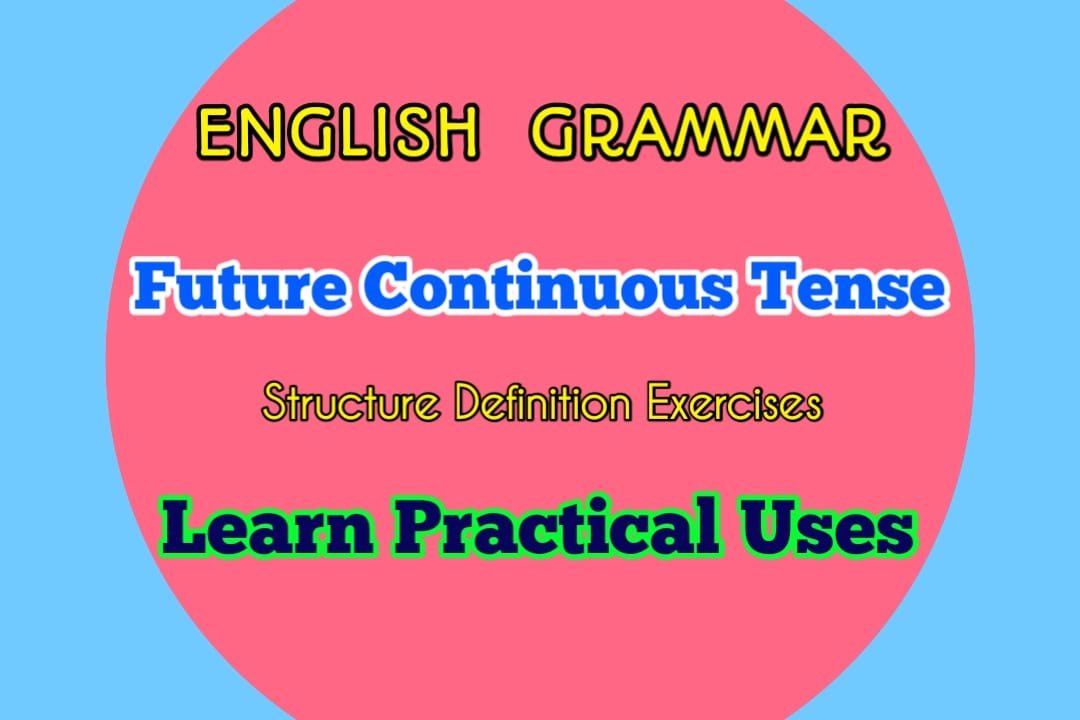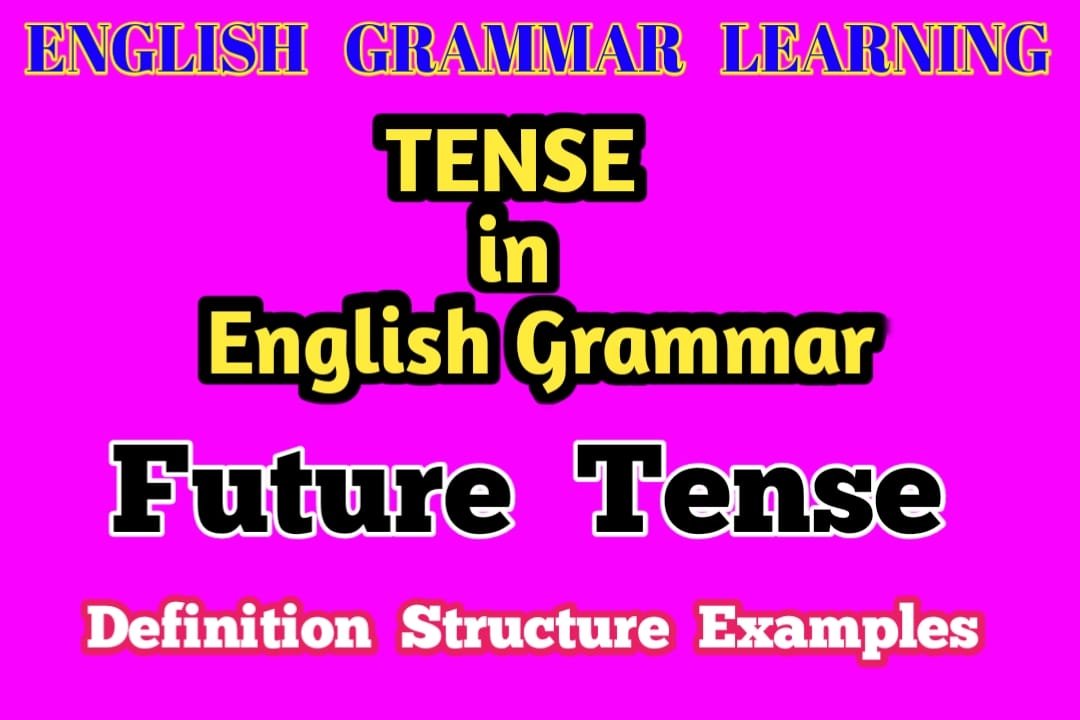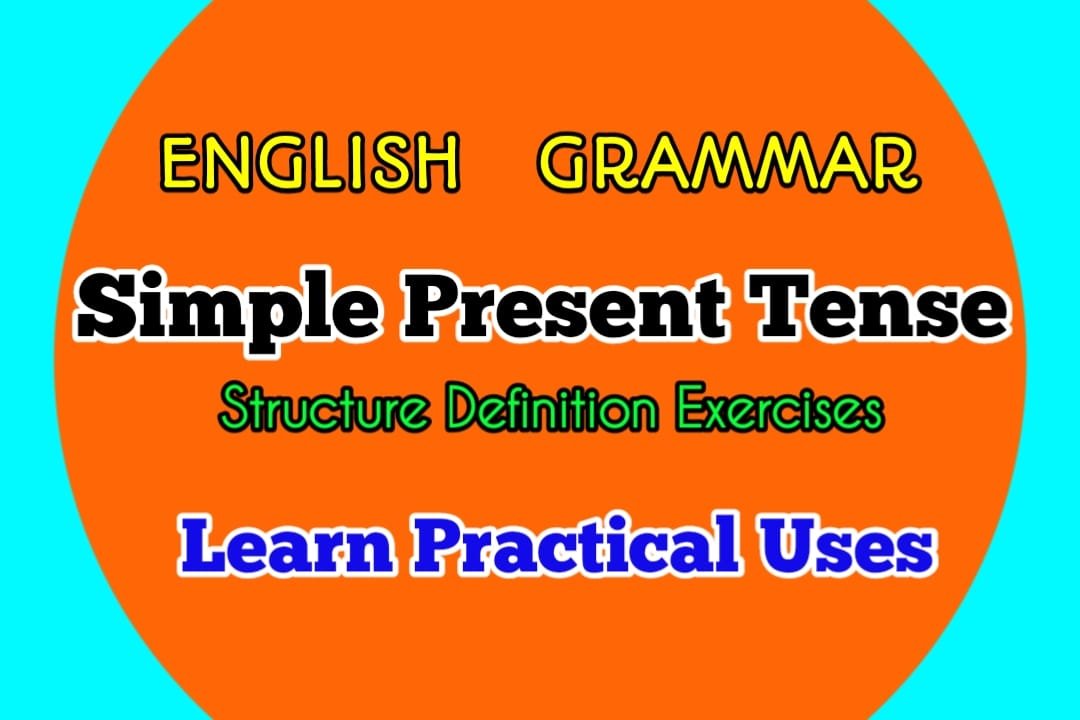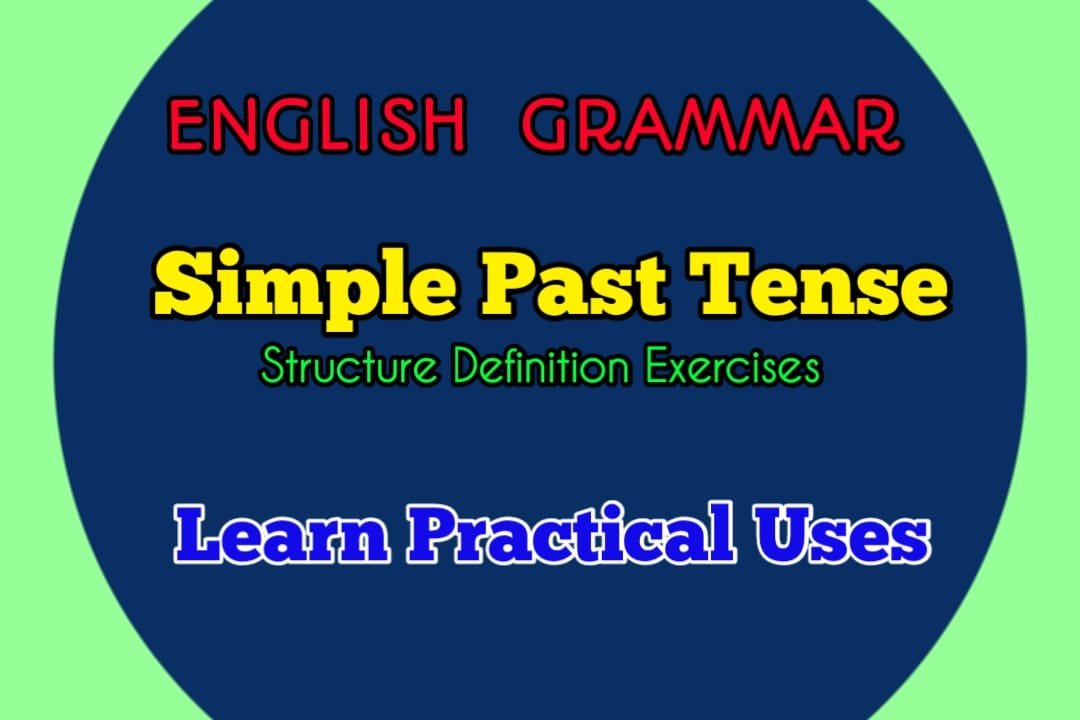Simple Future Tense refers to an action that is to take place after the moment of description. Simple Future Tense Structure has been discussed with practical uses and exercises in this article. Study them to make yourself easy for writing and speaking in the English language.
Simple Future Tense Definition
The simple future tense refers to a time later than now and expresses facts or certainty. For Example,
- He will build a house.
- I shall write a letter.
Normally, we use 'shall' or 'will' with the action verbs to express the Future Time. For example, I shall go. We shall go, Ravi will go, They will go, You will go. etc. 1st Person singular & Plural (I/we - shall) 2nd & 3rd person singular and plural ( You/He/She/They/any name - will)
We use words like 'tomorrow', 'next week', 'next month' etc to show future action.
Both 'Be' and 'Have' verbs can be used as Auxiliary verbs and Principal verbs. 'Be' verb when used as Main Verb, means 'to be oneself'. Example, I shall be a doctor When the 'have' verb is used as a Main Verb, it means 'to possess something'. Example, You will have a car.
Simple FutureTense with ‘Be’ verbs
| Positive | Negative | Interrogative | Negative-Interrogative |
| I shall be. | I shall not be. | Shall I be? | Shall I not be? |
| We shall be. | We shall not be. | Shall we be? | Shall we not be? |
| You will be. | You will not be. | Will you be? | Will you not be? |
| He will be. | He will not be. | Will he be? | Will he not be? |
| She will be. | She will not be. | Will she be? | Will she not be? |
| It will be. | It will not be. | Will it be? | Will it not be? |
| Sania will be. | Sania will not be. | Will Sania be? | Will not Sania be? |
| They will be. | They will not be. | Will they be? | Will they not be? |
Examples of ‘Be’ with complement
1. I shall be a doctor.
2. They will be merchants.
3. You will be rich.
4. He will be loyal.
5. They will be there in time.
6. The girl will be truthful.
Simple Future Tense with ‘Have’ verbs
| Positive | Negative | Interrogative | Negative-Interrogative |
| I shall have. | I shall have no/not. | Shall I have? | Shall I have no/not.? |
| We will have. | We shall have no/not. | Shall we have? | Shall we have no/not.? |
| You will have. | You will have no/not. | Will you have? | Will you have no/not.? |
| He will have. | Ha will have no/not. | Will he have? | Will he have no/not? |
| She will have. | She will have no/not. | Will she have? | Will she have no/not? |
| Sania will have. | Sania will have no/not. | Will Sania have? | Will Sania have no/not? |
| It will have. | It will have no/not. | Will it have? | Will it have no/not? |
| They will have. | They will have no/not. | Will they have? | Will they have no/not? |
Note: We never use 'has' after 'shall' or 'will'. In the case of the 'To have' Verb, when forming interrogative and Negative-Interrogative sentences, the Verb comes before the Subject and the Negative word 'Not' comes after the Pronoun and before the Noun. 'No' and 'Not' mean almost the same. 'No' comes before 'Noun'. But the word 'Not' comes before 'Article' and 'Adjective' or both. For example, No man, but not a single man; No dog, but not a dog, etc. Note the position of both No and Not in the above sentences. Now note carefully the position of 'no' only in sentences formed with 'to have' verbs:
Examples of ‘Have’ verbs with ‘no’/’not’
1. Will he have a car?
2. Ram will have two pens.
3. Will not Ram have three umbrellas?
4. The blacksmith will have no tool.
5. Will the blachsmith have no shop?
6. The doctor will have three gifts.
7. Will not the doctor have two cars?
8. They will get time.
9. Will they have no rewards?
Simple Future Tense Structure with action verbs
Simple Future Tense Structure is really important to know for writing as well as speaking in English. Simple Future Tense may be
- a Positive or Affirmative Sentence
- a Negative Sentence
- an Interrogative Sentence
- a Negative-Interrogative sentence
All structures are discussed below with a table and examples in an easy way.
Positive or Affirmative Sentence
Structure
Subject + shall/will + Verb + Object.
Table
| Person | Singular | Plural |
| 1st | I shall eat rice. | we shall eat rice. |
| 2nd | you will eat rice. | you will eat rice. |
| 3rd | He/She/it/(single name) will eat rice. | They/(two or more names) will eat rice. |
Important Note : we never add “s” or “es” with Verb in simple future tense.
Examples
1. He will play football.
2. The sun will rise in the East.
3. You will read history.
4. Birds will fly in the Sky.
5. We will go to school.
Negative Sentence
Structure
Subject + shall/will + Not+ Verb+ Object.
Table
| Person | Singular | Plural |
| 1st | I shall not eat rice. | We shall not eat rice. |
| 2nd | You will not eat rice. | You will not eat rice. |
| 3rd | He/She/It will not rice. | They will not eat rice. |
Examples
1. They will not play football.
2. The sun will not set in the West.
3. You will not drink milk.
4. Birds will not make houses.
5. We shall not make noise
Interrogative Sentence
Structure
Shall/Will+ Subject + Verb + Object?
Table
| Person | Singular | Plural |
| 1st | Shall I eat rice? | Shall we eat rice? |
| 2nd | Will you eat rice? | Will you eat rice? |
| 3rd | Will he/she/it eat rice? | Will they eat rice? |
Examples
1. Will he play football?
2. Will the sun rise in the East?
3. Will you read history?
4. Will birds fly in the Sky?
5. Will you be a doctor?
Negative-Interrogative Sentence
Structure
| Structure:-Shall/Will + Subject( If Pronoun) + Not + Verb + Object? |
| Shall/Will+ Not + Subject (If Noun)+ Verb + Object? |
If the Subject is “NOUN”, “Not” will be placed before “Subject”. Example:- Will not Asha like fruits?
If the Subject is “PRONOUN”, “Not” will be placed after “Subject”. Example:- Will they not study in college?
Table
| Person | Singular | Plural |
| 1st | Shall I not eat rice? | Shall we not eat rice? |
| 2nd | Will you not eat rice? | Will you not eat rice? |
| 3rd | Will he or she or it( Pro N) not eat rice? Will not John( N) eat rice? | Will they not eat rice? |
Examples
1. Will not Ram play football?
2. Will not he be a player?
3. Will you not read history?
4. Will we not be honest?
5. Will they not grow crops?
Change of Sentence in Simple Future Tenes
Explore the following table to understand the change of sentences in Simple FutureTense. For example, here the main verb is ‘eat’. But the change of sentences will be as follows with any other main verb in English.
| Positive | Negative | Interrogative | Negative-Interrogative |
| I shall eat rice. | I shall not eat rice. | Shall I not eat rice? | Shall I not eat rice? |
| We shall eat rice. | We shall not eat rice. | Shall we eat rice? | Shall we not eat rice? |
| You will eat rice. | You will not eat rice. | Will you eat rice? | Will you not eat rice? |
| He will eat rice. | He will not eat rice. | Will you eat rice? | Will you not eat rice? |
| She will eat rice. | She will not eat rice. | Will you eat rice? | Will you not eat rice? |
| Riya will eat rice. | Riya will not eat rice. | Will Riya eat rice? | Will not Riya eat rice? |
| They will eat rice. | They will not eat rice. | Will they eat rice? | Will they not eat rice? |
Practical use of Simple Future tense
The simple future tense is used to refer to –
- express an action that will take place in the future: They will come again next month.
- talk about unplanned action: I will help you to do the work.
- predict the future: It will rain tomorrow.
- talk about promises or commands: I will take you to the fair tomorrow.
Use of Simple Future tense with the ‘be going to‘ form.
We sometimes use the ‘be going to’ form to talk about the future.
- to express an action that has already been planned: I am going to prepare for the exam.
- to make predictions: Rita is going to win the Prize.
- to talk about actions that are planned and will definitely happen: Ravi is going to start the work next week.
Exercises
1. Fill in the blanks with the Future Indefinite forms of the Verbs given in the brackets.
(I) I shall …………….. go to school tomorrow (go)
(ii) He …………………. out the sum correctly (work).
(iii) The President of our club .. …………. over the meeting (preside).
(iv) The poet ……… ……………the scene very aptly (describe).
(v) We ……………………………the museum very soon (visit).
(vi) Gita ……………………….. us the secret box (show).







